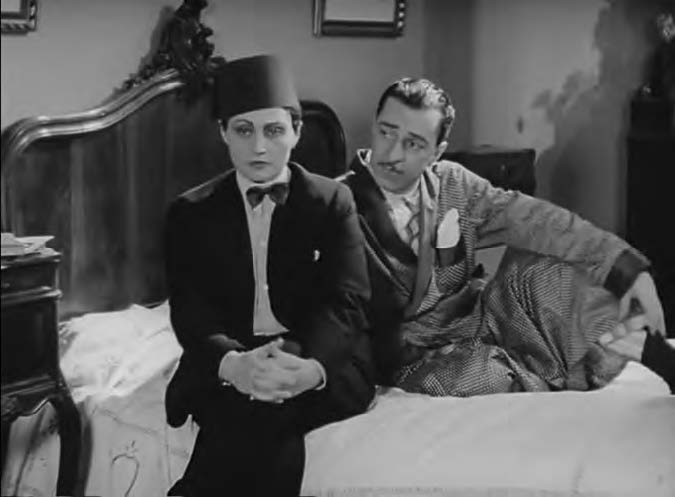Cookies allow us to understand how you use this site and improve your experience. Our detailed Cookie Policy can be found here. By continuing to use this website you accept our use of cookies.
Mandatory cookies help make this website usable by enabling basic functions like page navigation and access to secure areas of the website. Our website cannot function properly without these cookies.
Statistic cookies help us understand how visitors interact with this website, for example seeing which pages are most popular. This information is collected anonymously and helps us improve the site by making the most sought after information easy to find.
Marketing cookies are used to track visitors across websites allowing the display of ads that are relevant and engaging for the visitor. Whilst we do not display any advertising on the WJC website, allowing marketing cooking may allow other sites to see that you have visited our site.

When people think of Jewish directors and actors, they often think of Hollywood. But Jewish artists were also central to the development of the Arab film industry. One of the leading producers was Togo Mizrahi, an Alexandrian Jew, who was one of the most prolific filmmakers in the Middle East during the 1930s and 1940s. Known as a pioneer in the Egyptian Film industry, Mizrahi was a cinematic renaissance man who acted in, produced, and directed some of the most beloved Arab-language films in the first half of the twentieth century.
Born in 1901 in Alexandria, Joseph Elie "Togo" Mizrahi came from an aristocratic Jewish family of Italian origin who had immigrated to Egypt sometime in the 18th century. Though both of his parents were born in Egypt, Mizrahi never became an Egyptian citizen. Like many others of his day who lived in Egypt but held European citizenship, he still saw himself as Egyptian. Mizrahi was careful not to take public political stances; however, his cinematic work fully supported the Egyptian nationalist project and he openly spoke about his patriotic feelings towards Egypt in both the local and foreign press.

Although Cairo is often thought of as the center of Egyptian cinema, in Mirzahi’s time, Alexandria was actually its center, in large part due to the studio he set up in 1928 upon his return to Egypt after his studies. The films he produced between 1928– 1945
combining musical and melodramatic genres became a fixture of Egyptian cinema. Mizrahi’s films were often light and entertaining, enjoyed not only by Egyptians but by people throughout the Middle East and North Africa.
His films were also ideological, presenting a pluralist Egyptian society and criticizing social injustices, particularly class divisions and snobbery. His films also highlighted the importance of minority communities in Egypt such as Jews, Greeks, and Italians. For example, he regularly portrayed images of Jewish– Muslim friendships combined with sophomoric antics of youth getting into trouble and fighting over women. In the Egyptian cinematic landscape of the 1930s and early 1940s, this was simply society being reflected in art, as opposed to a bold political statement.
His most important films include al-Manduban [The Two Delegates] (1934), Khafir al-Darak [The Neighborhood Watchman] (1936), Al-Duktur Farhat [Dr. Farhat] (1935), Al-ʿIzz Bahdala [Mistreated by Affluence] (1937), Layla Mumtira [Rainy Night] (1939), Al-Tariq al-mustaqim [The Straight Road] (1943), and Layla (1942). Mizrahi’s last major production was Salamah (1945), starring the famous Egyptian singer Umm Kulthūm. Mizrahi directed almost forty films, produced many others, and also acted under the pseudonym Aḥmed al-Meshriqi in some of his own films. He also served as the secretary of the Union of Egyptian Cinema beginning in 1936 and was often cited in the press as a source of pride to the Egyptian film industry.
Tragically, the downturn for Mizrahi and his studio began in the mid 1940s. Amidst rumors of Zionist leanings, Togo Mizrahi was forced to leave Egypt in 1946, settling in a villa he owned in Italy. Initially, he planned to return to Egypt when the political situation had stabilized and thus continued to follow trends in Egyptian cinema. He even made a short trip to Egypt in 1949 and considered making an Arabic adaptation of The Count of Montecristo. Alas, this was not to be. During the Egyptian Free Officers revolution of 1952, the position of Jews further deteriorated, and although Mizrahi intermittently traveled to Egypt he never produced another film. In 1961, his studio and production company were nationalized by the Nasser regime. As part of this process, he lost the rights to the films he had produced and his company's assets were seized by the state. To add insult to injury, Egyptian broadcasters took his name out of the credits when airing his films on television, a policy that held until it was reversed after the 1979 Camp David Accords.
Little is known of Mizrahi’s life in Italy. He settled in Rome, working in the Italian cinema industry as a producer and an adviser. He regularly traveled to France to visit his three sisters who has also fled Egypt and settled in Paris with their French husbands. He died on June 5, 1986, forty years after directing his last film in Egypt.
- Starr, D. A. (2021). Togo Mizrahi and the Making of Egyptian Cinema (Ser. University of California series in jewish history and cultures, 1). University of California Press. https://doi.org/10.1525/9780520976122
- Walker Robins. ‘Mizrahi, Togo’. Encyclopedia of Jews in the Islamic World. Ed. Norman A. Stillman et al.

A Jewish community had existed in Egypt since the sixth century BCE, though its size and heterogeneity fluctuated periodically in response to political and economic changes. According to the 1857 census, five thousand Rabbinic Jews and two thousand Karaite Jews lived in the country. Most of them were long-time residents in Egypt and were deeply rooted in its culture and language.
